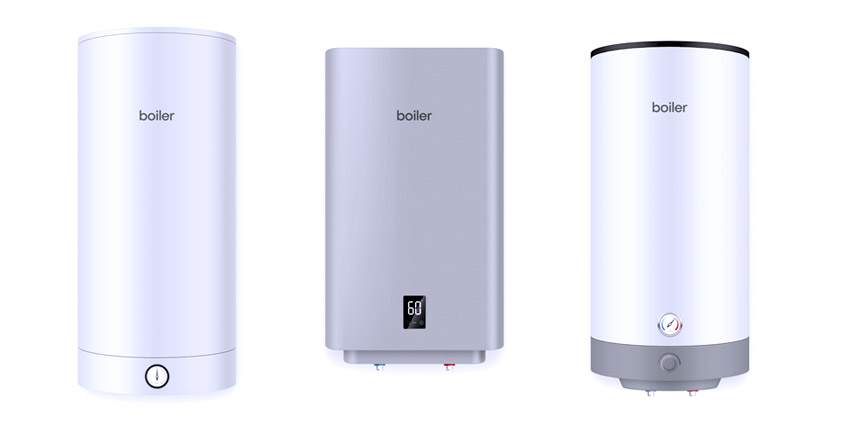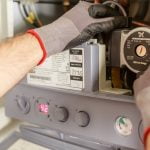Living in the UK, we are all too familiar with the importance of boilers during the cold winter. Boilers provide us with hot water and heating. Still, suppose yours is not performing optimally, resulting in high energy bills and inefficient hot water and heating.
In that case, it may be time to invest in a new boiler with a high-efficiency rating. When making this crucial decision, you will need to consider the type of Boiler, the wattage size, and the space available in your home as a boiler can last up to 10-15 years, and rushing into your decision can prove to be very costly.
This article will guide how to choose the right Boiler for your home, ensuring you get the best product in terms of performance, price value, and longevity.
Consider the type of boilers that are available in the
market!
Choosing the correct type of Boiler is essential, as it will provide reliable service for years to come. If you don’t make the proper selection, you may be stuck with a flawed system for a long time. Generally, there are three central boilers available: Regular, System, and Combi. Each has unique features and benefits, so let take a closer look.
Regular Boilers
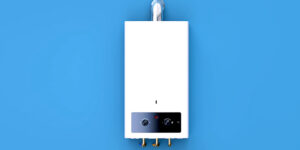
A regular Boiler, also known as a heat-only or conventional boiler, simultaneously provides heating and hot water to multiple taps and bathrooms. It consists of a cold-water storage tank and a hot-water storage
tank, making it a traditional way to provide your home with an uninterrupted heating and hot water supply.
The operation involves taking water from the mains into the cold-water storage tank, which is generally stored in your loft, and transferring it to the hot water tank, which is usually located in your airing cupboard. Additionally, it consists of a feed expansion tank that helps maintain water
levels in case of lost water due to leakage or evaporation. The cost of a Regular Boiler ranges from £730- £2300.
System Boilers
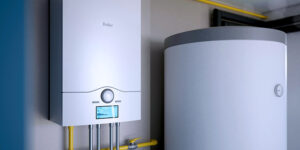
A system Boiler is a type of Boiler that provides hot water and heating to multiple bathrooms and taps simultaneously. It may look like a Regular boiler, but the main difference is that a System Boiler only requires a hot water tank, and everything else is built internally, leaving you with plenty of space.
In terms of operation, it heats water via a heat exchanger, which is then stored in the hot water tank and distributed to your taps, showers, and radiators. The cost of a System Boiler ranges from £1100- £3500.
Combi Boilers
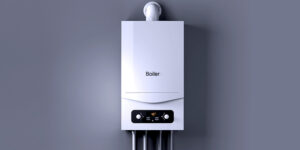
A combi boiler is the most popular and space-efficient Boiler, providing hot water on demand when needed. Around 80% of homes in the UK have Combi Boiler installed. Their popularity is because they draw water directly from the mains, eliminating the need for hot and cold-water storage tanks.
This makes them ideal for those looking to save space and energy in their home. The cost of a Combi Boiler ranges from £625 – £6188, depending upon the brand and the wattage output.
Weigh in the advantages and disadvantages of different
types of boilers.
Now that you are familiar with the various types of boilers and how they operate, it is important to consider the pros and cons of each option before making a purchase. Doing so will help you make an informed decision that best suits your needs.
Regular Boiler
Advantages
- Regular Boiler provides hot water at multiple taps, showers,
and bathrooms. - The process of installing a Regular Boiler is relatively
simple. - It is also compatible with immersion heaters consisting of
a hot water tank. - Regular boilers are not highly dependent on the main
pressure.
Disadvantages
- A regular Boiler requires ample space to store two
separate water storage tanks. - Once your tank runs out of hot water, you will need to wait
for the water to heat up again, which might take some
time. - The stored water in the hot water tank can lose its heat if
not used for a few hours.
System Boiler
Advantages
- System Boiler provides hot water at multiple taps, showers,
and bathrooms. - System Boilers occupy less space as they consist only of hot water tanks.
- They are also compatible with immersion heaters.
- Compatible with solar panels.
Disadvantages
- Occupies more space as compared to Combi Boilers.
- Hot water is not instant as compared to Combi Boilers.
- Complex Installation process.
- Water might get wasted if you dont use all the water in the
tank, as it will lose its heat.
Combi Boiler
Advantages
- Get instantaneous hot water on demand.
- Its compact design makes it easy to install.
- Its condensing technology saves you money on energy bills.
- Compatible with a variety of fuel options.
Disadvantages
- It highly depends upon the mains water pressure.
- Not suitable for larger homes with heavy demand for hot
water and heating. - It is not compatible with power showers.
Choose the fuel type!
After weighing the advantages and disadvantages of 3 different boilers, it is time to choose the fuel type. The options you will have been following:
1- Gas
Due to its affordability, gas is the most popular and widely used fuel for heating boilers. According to UK boiler statistics, in 2023, around 23 million homes in the UK have a gas boiler. However, the UK government has implemented regulatory policies to limit gas usage to reduce environmental carbon dioxide emissions.
You can easily access gas by speaking to your local gas network provider. Additionally, modern gas boilers are much more energy-efficient than older models, with some reaching up to 90% efficiency. Therefore, switching to a more up-to-date system may be the best option for your needs.
2- Oil
3- LPG
LPG is a more expensive fuel option than gas and oil but emits around 12% fewer CO2 emissions. It is an efficient choice, as it requires less storage space, and its maintenance costs are cheaper than oil. Despite its higher cost, there are fewer qualified engineers available for LPG.
However, if you are not connected to a gas network and oil is your only option, then LPG is worth considering.
4- Electric
Electricity is a fuel type gaining considerable popularity due to its lower carbon dioxide emissions. It is more expensive than oil and gas but has fewer maintenance costs and is safer to operate. If you have solar panels, electricity is the best fuel option, as you can offset a significant portion of the cost.
Therefore, electricity is the best option if you are willing to bear the hefty price tag to reduce your carbon footprint.
5- Biomass
Biomass fuels are an effective and cost-efficient fuel type for boilers that can generate renewable energy while reducing emissions. Biomass fuels are
derived from organic materials, including wood, agricultural waste, and other by-products of forestry or farming industries. These biomass fuels can be burned in a boiler to produce heat energy used in many industrial applications such as food processing, paper production, and even small-scale power generation. Burning biomass creates fewer carbon dioxide emissions than traditional fossil fuels like coal and natural gas due to the lower carbon content of organic materials used as fuel sources.
Additionally, fuel supply for biomass is abundant and relatively low cost due to the availability of forests, farms, and agricultural waste. The sustainability of biomass utilization makes it very attractive among those looking for solutions to reduce environmental impact while still being cost-effective in the long run.
Other factors to consider:
Now you know the type of boilers that are available as well as the fuel type, but still, there are a few factors to consider before buying a boiler:
Energy Prices:
Knowing the current and future energy prices is essential, as the UK government has implemented the Energy Price Guarantee (EPG) to protect customers from rising gas and electricity costs by capping the amount suppliers can charge per unit of energy used.
However, it is vital to remember that energy prices may still increase in 2023, regardless of how much energy you conserve. Selecting a boiler with a high-efficiency rating is recommended to ensure you are saving on your energy bills.
Budget:
When budgeting for a new boiler, it is important to consider the potential long-term savings associated with installing a high-efficiency boiler. Though investing in an efficient model may have a higher initial cost, the return on investment can be significant over time due to reduced energy and maintenance costs. Consider including additional costs such as installation, insulation, and venting materials when pricing different units.
Additionally, research local incentives or rebates that may reduce total investment, including those from the local utility or government agencies.
With proper planning and research, one can purchase the right equipment to fit their current needs while minimizing overall costs over time.
Usage and Household size:
Warranty Period
When purchasing a boiler, it is crucial to assess the quality of the warranty period offered by the specific model. Look for warranties that are comprehensive and offer protection from defects and malfunctions in both parts and labour over the lifetime of the warranty period. Generally, warranties can vary from 1-5 years, depending on product type and manufacturer.
Boilers usually have long periods of coverage due to their high cost of repairs or replacement if something goes wrong. More expensive models may come with a more extended warranty, providing peace of mind. It is essential to read the terms and conditions carefully to understand all allowable exclusions, as well as what service or repair costs will need to be paid by you should something go wrong.
Cost of the Boiler
The cost of a boiler can vary depending on the type and size required. Generally, boilers are priced according to their energy efficiency rating, ranging from 90-95% for high-efficiency models to lower ratings for standard models. In addition, factors such as fuel type (natural gas, oil, or electric), BTU output and model features may affect boiler cost.
Professional installation is recommended for best results, which can add anywhere from £500-£2,000 to the total cost depending on complexity and other geographic factors. Be sure to consult with a professional to determine the boiler cost and any additional installation costs that may be incurred.
Top Brands
Choosing a top-tier brand is essential for ensuring optimal performance, reliability, and efficiency ratings, regardless of the type of Boiler. Investing in a quality boiler can save you time, money, and hassle in the long run. Below mentioned are the top brands:
- Worcester Bosch
- Viessmann Boilers
- Alpha Boilers
- Ideal Boilers
- Valliant Boilers
- Baxi Boilers
- Glow Worm Boilers
- Potterton Boilers
- Intergas Boilers
- Vokera Boilers
Would you need a cover for your New Boiler?
The answer is a resounding yes when considering whether you need a cover for your new Boiler. Not only will a cover protect your Boiler from the elements and potential damage from burst pipes or flooding, but it can also help to reduce energy bills by maintaining a consistent temperature throughout the home and reducing water wastage and heat loss.
A quality cover should be tailored to your specific model, allowing for ventilation while providing some level of insulation to further assist in reducing energy costs. To better understand whats available, check out the Boiler and heating cover on 24|7 Home Rescue.
Choosing a reputable brand with extensive warranties and guarantees will provide you with added peace of mind and assurance against mechanical breakdowns or premature system failure.
Conclusion:
When purchasing a new boiler, it is important to consider all available options, research models that fit your needs and speak to suppliers about pricing and after-sales service. Price should not be the only factor in deciding – safety, efficiency, warranty terms and reviews from the community are all vital factors to consider.
Ultimately, weighing up all these elements and ensuring you are confident in your decision before committing to any purchase is essential.
